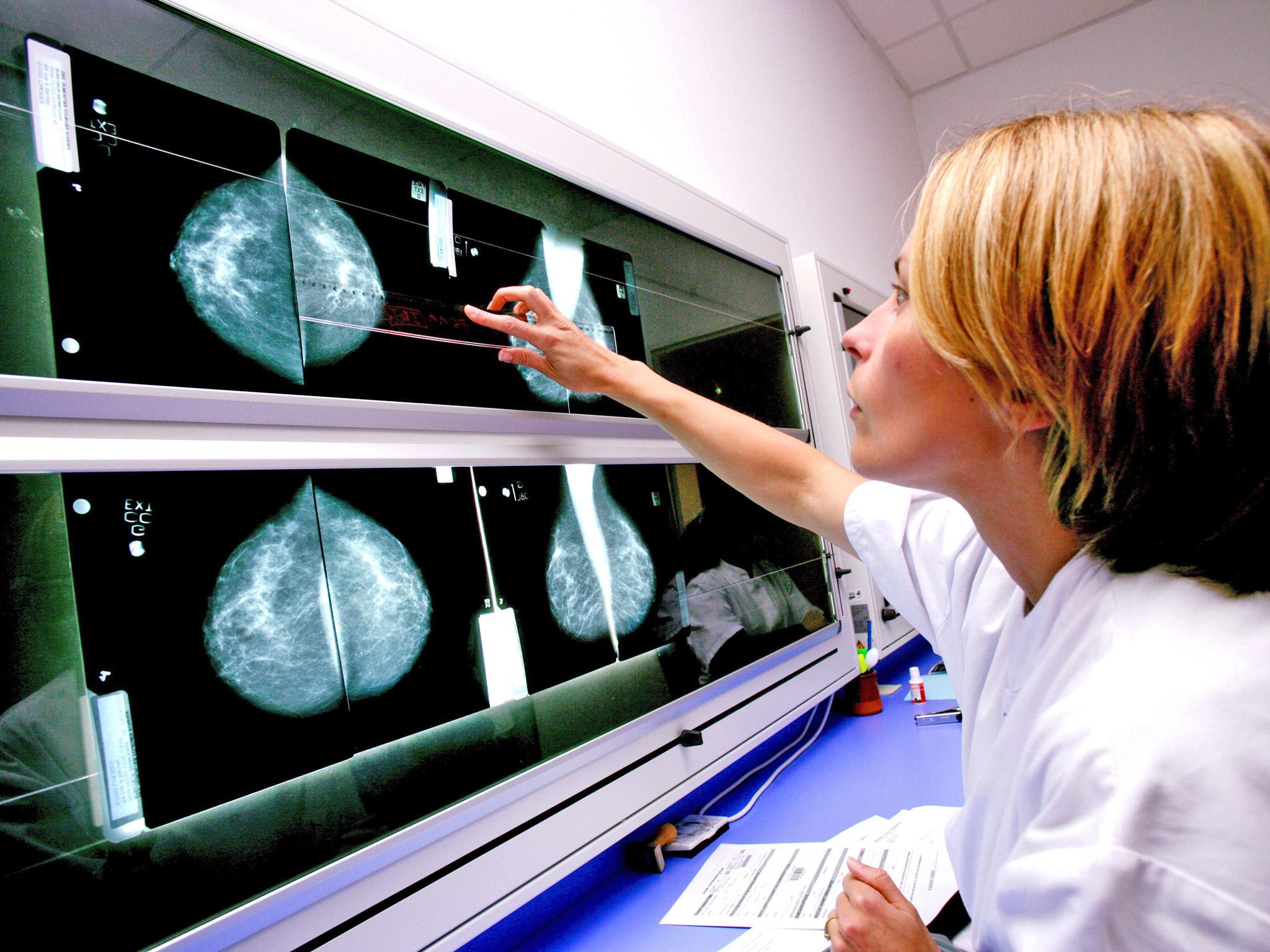Cancer rates in women to increase six times faster than men with rising obesity partly to blame
Experts predict there will be around 16,000 more cases of breast cancer in UK by 2035

Cancer rates are set to rise six times faster in women than in men over the next two decades, new data has shown.
Obesity and unhealthy lifestyles are behind an increased cancer risk for both sexes, warned Cancer Research UK – and women will suffer disproportionately from the rise.
This is because a number of types of cancer linked to being obese only affect women, such as womb cancer, ovarian cancer and postmenopausal breast cancer. Cervical and oral cancers were also found to be on the rise among women.
Sir Harpal Kumar, the charity’s chief executive, said the figures showed “the huge challenge we continue to face, both in the UK and worldwide.” More people die from cancer than AIDS, malaria and tuberculosis put together, he said.
“With more investment into research, we hope to make big improvements over the next 20 years in diagnosing the disease earlier and improving and developing treatments so that by 2034, three in four people will survive their disease,” said Sir Harpal.
An estimated 4.5 million women and 4.8 million men will be diagnosed with cancer by 2035, according to the organisation, with cancer rates rising by around three per cent for women and half a per cent for men.
Drinking alcohol is also impacting on women's cancer rates, but not to the same degree as smoking and obesity.
Although smoking rates are now falling across the UK, historically women only took up smoking in large numbers after the habit was already popular among men. This means the impact of smoking on women and their risk of lung cancer is being felt keenly now.
Breast, prostate, lung and bowel cancer are the most common cancers, accounting for more than half (53 per cent) of new cases of cancer each year in the UK.
Figures show that cases of breast cancer are expected to rise from 54,833 in 2014 to 71,022 in 2035.
Ovarian cancer cases will jump from 7,367 to 10,500, while lung cancer cases will go up from 21,633 to 29,957.
Sarah Toule, head of health information at World Cancer Research Fund, said: “Cancer is a devastating disease and it is concerning that rates are predicted to rise so sharply in women, especially as so many cancer cases could be prevented.
“In fact, our evidence shows that around a third of the most common cancer cases could be prevented if people were a healthy weight, had a healthier diet and were more active.
“For breast cancer, this would mean preventing around two in five cases.”
Professor Kevin Fenton, director of health and wellbeing at Public Health England, urged people to adopt healthier lifestyles to lessen their likelihood of developing the disease.
“The top things we can all do to prevent and reduce the risk of cancer are quitting smoking, maintaining a healthy weight, being physically active and attending cancer screening when invited,” he said.
More than half of women, 58 per cent, and 65 per cent of men in England were overweight or obese in 2014, according to the Health and Social Care Information Centre.
As well as breast, womb and ovarian cancer, obesity is associated with increased risks of pancreatic, kidney, thyroid and colon cancer among others.
Tomorrow has been named World Cancer Day, with more than 600 activities planned worldwide to raise awareness of the disease.
Join our commenting forum
Join thought-provoking conversations, follow other Independent readers and see their replies
Comments